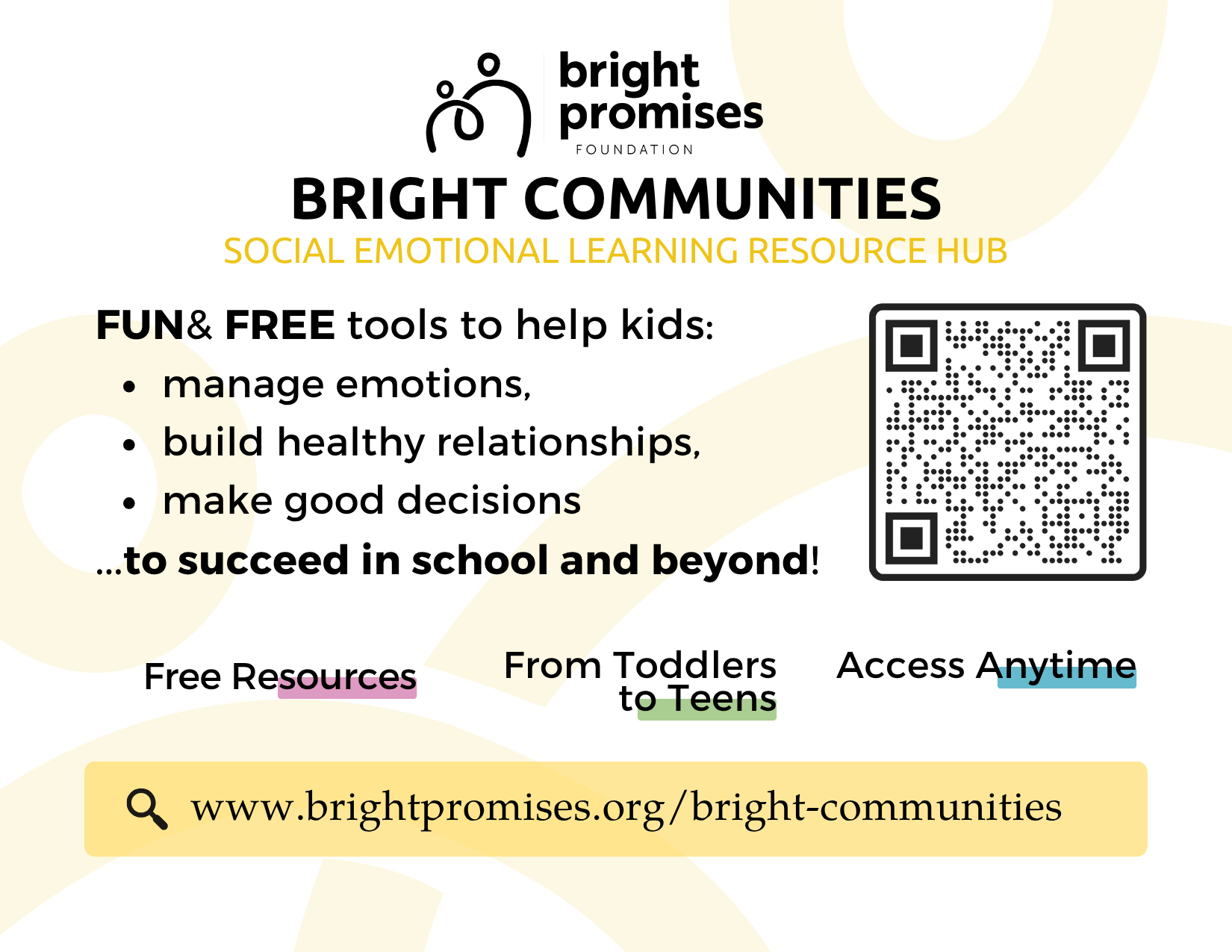Trauma Informed Awareness Day Youth Takeover: Two key ingredients in my recipe for trauma-informed care
Two key ingredients in my recipe for trauma-informed care for myself, as well as the healing others.
Deep listening, and reflection (at many levels of depth) are two key trauma-informed ingredients incorporated into my recipe of my own care, which then further influences my approach to working in solidarity with others. Examining deeper listening was one of the popular guidelines in justice work that we used in the Bright Promises Youth Council (BYPC) to help foster thoughtful sharing space. We also used reflection as the base of our personal work in this experience.
While there is a surge of interest in self-care to address everyday stress, I’ve found that for myself, a lot of the popular shares seem to lack understanding about or acknowledgement of systems of trauma embedded in our cultures. Trauma can change the way our brains and bodies work. The social impacts of trauma are many and varying, so there is no universal “fix”. Even still, these strategies we’re seeing shared more and more are, in my view, a unique form of mutual aid and care, sharing reminders and resources can be great starting points to kickstart an approach customized to meet our needs, helping us better navigate our path through wellness.
On the subject of memory, for a lot of folks, trauma impacts their memories and or recalling ability, such as not remembering important details surrounding life events (traumatic or otherwise). With this in mind, I’ve been making it a practice to encourage myself and those I work alongside to especially consider the power of reflection. Many aspects of our lives essentially demand we think ahead, and move ahead swiftly. While it’s necessary at times, it can be stressful to be darting forward, produce, and it can push people to disassociate in a way that strains their recall abilities about/around their experiences. It can be difficult to make sense of what’s happening, how we got “here”, or even the source of what we’re experiencing.
“What’s new? What’s next?!”
We’re often asked or pushed to ask “What’s new? What’s next?!”. So I want to remember to add some questions in other directions as well- which can be more stressful, adding to the pot, but hopefully designed with our capabilities and needs in mind, potentially leading to great reward. I am developing myself to consider reflecting more and exploring which tools and methods are most alluring/practical to us. As a space holder, I’ve been moving to intentionally seek out moments to offer time, tools, or even just gentle reminders to incorporate reflection into the work or the experience.
An example of a reflective tool relevant to a lot of folks is cameras and recorders. I want to see the people I love, myself included, take more photos and videos for ourselves. The internet highway often makes people feel they should be snapping for performances and views, centering others over ourselves, and sometimes we’re then forgetting to use tools to aid in our own self-reflection. This can help us understand our joy and pain, our assumptions and truths, our curiosities, so much more. Listening and sharing can help us make sense of how our experiences connect us to those near and far
Photos, notes, inside jokes, screenshots, mementos, objects symbolizing meaning, casual videos, creative works- the range continues on for what things have meaning to us that are special and specific. Sometimes they may not mean something to others, be profitable, etc., but they can be worth saving and revisiting for ourselves. I want to feel myself and my communities doing this more, for many reasons and hopeful rewards that come with practicing care for ourselves and each other.
Investing in Self-Reflection and Deep Listening
This season with the BPYC, we asked the representatives to take time to reflect in ways that center themselves first, instead of just producing reflections solely for the consumption/approval of others. The task was often to have a conversation with ourselves first, and then consider if/when/how we may then invite others to witness some of that reflection. This led us into introductory discussions on deep listening when witnessing others share, listing to hear, and offering present energy, rather than “waiting to respond/have our turn” or “fixing” what we perceive to be missing/needed for others. To listen deeply involves listening, from a receptive, and caring place. Listen intently to the feelings beneath the words of others, and ourselves.
Moving through wellness in a trauma-informed way, to me, means investing in Self-Reflection and Deep Listening. As professionals, as community members, as lovers, as breathers, these are two of many ingredients we can cultivate deeply, and intentionally in our healthy socioemotional ecosystems. I hope we can all continue to explore and strive for a balance between listening and reflecting, speaking and acting.
Two key ingredients in my recipe for trauma-informed care for myself, as well as the healing others.
Deep listening, and reflection (at many levels of depth) are two key trauma-informed ingredients incorporated into my recipe of my own care, which then further influences my approach to working in solidarity with others. Examining deeper listening was one of the popular guidelines in justice work that we used in the Bright Promises Youth Council (BYPC) to help foster thoughtful sharing space. We also used reflection as the base of our personal work in this experience.
While there is a surge of interest in self-care to address everyday stress, I’ve found that for myself, a lot of the popular shares seem to lack understanding about or acknowledgement of systems of trauma embedded in our cultures. Trauma can change the way our brains and bodies work. The social impacts of trauma are many and varying, so there is no universal “fix”. Even still, these strategies we’re seeing shared more and more are, in my view, a unique form of mutual aid and care, sharing reminders and resources can be great starting points to kickstart an approach customized to meet our needs, helping us better navigate our path through wellness.
On the subject of memory, for a lot of folks, trauma impacts their memories and or recalling ability, such as not remembering important details surrounding life events (traumatic or otherwise). With this in mind, I’ve been making it a practice to encourage myself and those I work alongside to especially consider the power of reflection. Many aspects of our lives essentially demand we think ahead, and move ahead swiftly. While it’s necessary at times, it can be stressful to be darting forward, produce, and it can push people to disassociate in a way that strains their recall abilities about/around their experiences. It can be difficult to make sense of what’s happening, how we got “here”, or even the source of what we’re experiencing.
“What’s new? What’s next?!”
We’re often asked or pushed to ask “What’s new? What’s next?!”. So I want to remember to add some questions in other directions as well- which can be more stressful, adding to the pot, but hopefully designed with our capabilities and needs in mind, potentially leading to great reward. I am developing myself to consider reflecting more and exploring which tools and methods are most alluring/practical to us. As a space holder, I’ve been moving to intentionally seek out moments to offer time, tools, or even just gentle reminders to incorporate reflection into the work or the experience.
An example of a reflective tool relevant to a lot of folks is cameras and recorders. I want to see the people I love, myself included, take more photos and videos for ourselves. The internet highway often makes people feel they should be snapping for performances and views, centering others over ourselves, and sometimes we’re then forgetting to use tools to aid in our own self-reflection. This can help us understand our joy and pain, our assumptions and truths, our curiosities, so much more. Listening and sharing can help us make sense of how our experiences connect us to those near and far
Photos, notes, inside jokes, screenshots, mementos, objects symbolizing meaning, casual videos, creative works- the range continues on for what things have meaning to us that are special and specific. Sometimes they may not mean something to others, be profitable, etc., but they can be worth saving and revisiting for ourselves. I want to feel myself and my communities doing this more, for many reasons and hopeful rewards that come with practicing care for ourselves and each other.
Investing in Self-Reflection and Deep Listening
This season with the BPYC, we asked the representatives to take time to reflect in ways that center themselves first, instead of just producing reflections solely for the consumption/approval of others. The task was often to have a conversation with ourselves first, and then consider if/when/how we may then invite others to witness some of that reflection. This led us into introductory discussions on deep listening when witnessing others share, listing to hear, and offering present energy, rather than “waiting to respond/have our turn” or “fixing” what we perceive to be missing/needed for others. To listen deeply involves listening, from a receptive, and caring place. Listen intently to the feelings beneath the words of others, and ourselves.
Moving through wellness in a trauma-informed way, to me, means investing in Self-Reflection and Deep Listening. As professionals, as community members, as lovers, as breathers, these are two of many ingredients we can cultivate deeply, and intentionally in our healthy socioemotional ecosystems. I hope we can all continue to explore and strive for a balance between listening and reflecting, speaking and acting.








.svg)

